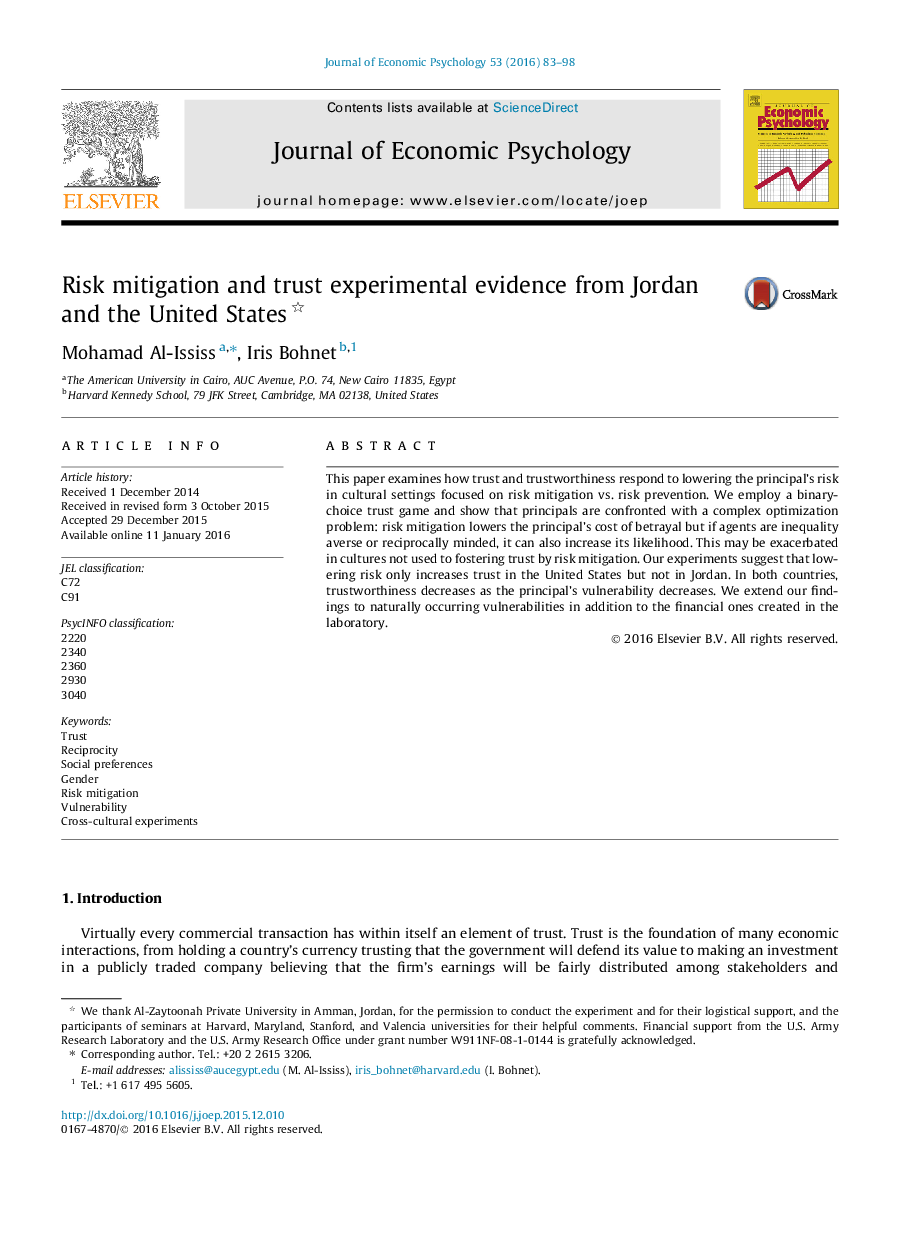| Article ID | Journal | Published Year | Pages | File Type |
|---|---|---|---|---|
| 7244411 | Journal of Economic Psychology | 2016 | 16 Pages |
Abstract
This paper examines how trust and trustworthiness respond to lowering the principal's risk in cultural settings focused on risk mitigation vs. risk prevention. We employ a binary-choice trust game and show that principals are confronted with a complex optimization problem: risk mitigation lowers the principal's cost of betrayal but if agents are inequality averse or reciprocally minded, it can also increase its likelihood. This may be exacerbated in cultures not used to fostering trust by risk mitigation. Our experiments suggest that lowering risk only increases trust in the United States but not in Jordan. In both countries, trustworthiness decreases as the principal's vulnerability decreases. We extend our findings to naturally occurring vulnerabilities in addition to the financial ones created in the laboratory.
Keywords
Related Topics
Social Sciences and Humanities
Business, Management and Accounting
Marketing
Authors
Mohamad Al-Ississ, Iris Bohnet,
